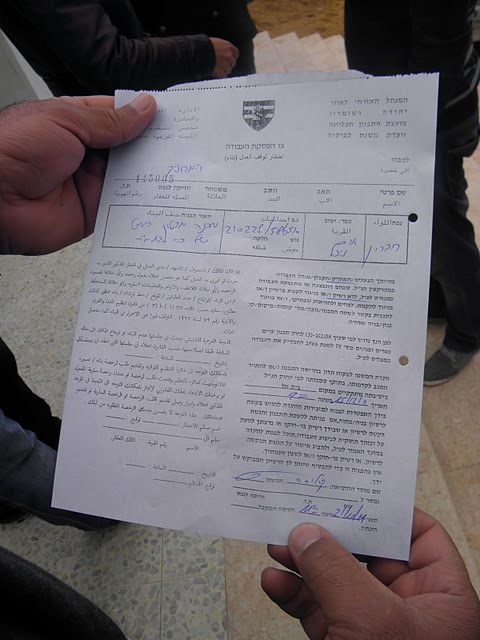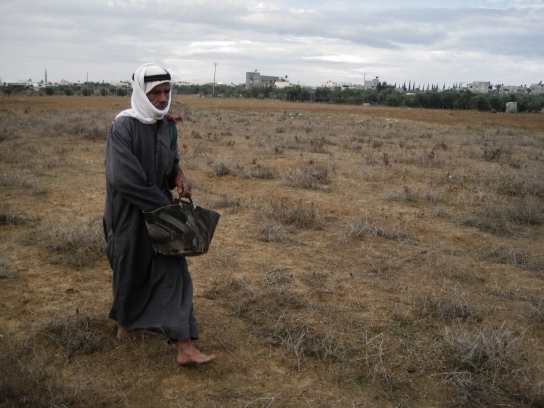-
Demolition threats continue in Imnzeizil
by Aida Gerard 21 November 2011 | International Solidarity Movement, West Bank On the same morning when an official from the ICA, Israeli Civil Administration, promised to “pardon” the demolition orders of the solar panels in Imneizil, a village at the southern border of the West Bank, a new demolition order was delivered to the village […]
-
Sowing wheat in Israel’s kill zone
by Radhika Sainath 22 November 2011 | Notes from Behind the Blockade One need not be an agronomist to know that its been a long time since the farmers of Khuza’a, Gaza have tended to their land near the border. When we arrived on Friday, the densely packed soil formed small hills with alien, ridged, […]
-
Hebron: Family members share their stories of settler abuse
by Alistair George 22 November 2011 | International Solidarity Movement, West Bank As thousands of Israeli settlers and Zionists crowded into Hebron on Friday night, November 19th, and Saturday for Shabbat Chaye Sarah – celebrating Abraham’s biblical purchase of land on the site of the Ibrahimi Mosque, some Palestinian neighbourhoods experienced a surge in settler […]
Action Alert An Nabi Saleh Apartheid Wall Arrests BDS Bethlehem Bil'in Cast Lead Demonstration Denial of Entry Ethnic Cleansing Farmers Gaza Global Actions Hebron House Demolition International law Israeli Army Jerusalem Live Ammunition Nablus Ni'lin Prisoner Ramallah Rubber-coated steel bullets Settlement Settlers Settler violence Tear-Gas Canister Video


